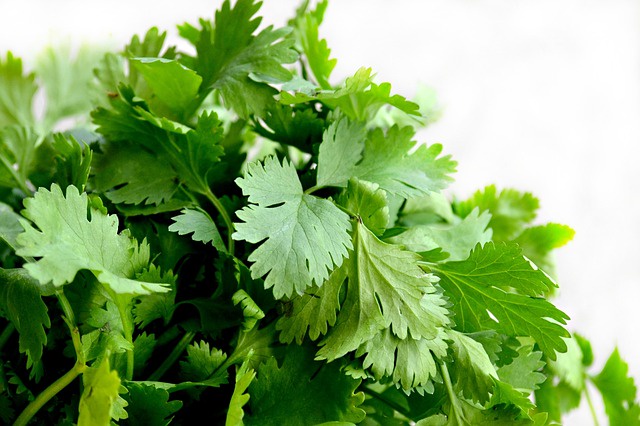If you're a proud bunny owner, you know how important it is to provide your furry friend with a balanced and nutritious diet [Can Rabbits Eat Cilantro] . Rabbits are herbivores, which means their diet primarily consists of plants. While hay is a staple food for rabbits, introducing fresh vegetables and herbs can add variety and essential nutrients to their diet. One herb that often piques the curiosity of rabbit owners is cilantro. In this blog post, we'll explore whether rabbits can eat cilantro and the nutritional benefits and potential risks associated with it.
Can Rabbits Eat Cilantro?
The good news is, yes, rabbits can eat cilantro! Cilantro, also known as coriander leaves or Chinese parsley, is a safe and healthy treat for most rabbits when offered in moderation. Its fresh and citrusy flavor often makes it a favorite among bunnies. However, it's essential to remember that treats should only account for a small portion of your rabbit's diet, and the main diet should still consist of hay and fresh water.
Nutritional Benefits of Cilantro for Rabbits
Cilantro is not only a tasty herb but also provides various nutritional benefits for rabbits. Here are some of the essential nutrients found in cilantro and how they contribute to your bunny's well-being:
- Vitamins: Cilantro is rich in vitamins A, C, and K. Vitamin A is essential for maintaining good vision, healthy skin, and a robust immune system. Vitamin C is an antioxidant that helps boost the immune system and promotes overall health. Vitamin K is vital for blood clotting and bone health.
- Minerals: This herb contains essential minerals like calcium, potassium, and magnesium. Calcium is crucial for maintaining strong bones and teeth in rabbits. Potassium is essential for proper muscle and nerve function, and magnesium supports various biochemical reactions in the body.
- Antioxidants: Cilantro contains antioxidants, such as beta-carotene and quercetin, which help protect cells from damage caused by harmful free radicals.
- Fiber: Like many leafy greens, cilantro is a good source of dietary fiber. Fiber is essential for maintaining a healthy digestive system in rabbits and helps prevent gastrointestinal issues.
- Hydration: Cilantro has a high water content, which can contribute to your rabbit's daily hydration needs. Ensuring your bunny stays hydrated is crucial for their overall health.
How to Introduce Cilantro to Your Rabbit
Before offering cilantro to your rabbit, make sure to follow these guidelines:
- Gradual Introduction: If your rabbit hasn't tried cilantro before, introduce it gradually. Start with a small amount, and observe how your bunny reacts to it. If they enjoy it and don't show any signs of digestive upset, you can continue offering it as an occasional treat.
- Wash Thoroughly: Always wash cilantro thoroughly before giving it to your rabbit. Pesticides or other harmful substances used during cultivation can be harmful to your pet.
- Moderation is Key: While cilantro is safe for rabbits, it should be given in moderation. Treats should only make up about 5-10% of your rabbit's diet to avoid potential health issues.
- Monitor for Allergies: Like humans, rabbits can have allergies too. Watch out for any signs of allergic reactions, such as skin irritation, excessive scratching, or breathing difficulties, and consult your veterinarian if you notice any problems.
Potential Risks and Precautions
While cilantro is generally safe for rabbits, there are a few risks and precautions to be aware of:
- Oxalates: Cilantro contains oxalates, which, in large amounts, can interfere with calcium absorption and potentially lead to kidney issues. However, the oxalate levels in cilantro are relatively low compared to other greens like spinach. As long as cilantro is offered as an occasional treat and not a significant part of the diet, the risk of oxalate-related problems is minimal.
- Gas and Digestive Issues: Some rabbits may be more sensitive to new foods, including cilantro, and may experience gas or other digestive issues. To avoid this, start with a small amount and gradually increase the portion size if your rabbit tolerates it well.
- Diarrhea: Feeding large amounts of cilantro or introducing it too quickly can lead to diarrhea in rabbits. Always monitor your bunny's droppings after introducing any new food and adjust accordingly.
- Pesticides and Contamination: As mentioned earlier, make sure to wash cilantro thoroughly to remove any potential pesticide residue or contaminants that could be harmful to your rabbit.
Conclusion
In conclusion, cilantro can be a healthy and enjoyable treat for rabbits when given in moderation. Its rich nutritional profile makes it a great addition to your bunny's diet, providing essential vitamins, minerals, and antioxidants. Remember always to introduce new foods gradually and monitor your rabbit's response. If you notice any adverse reactions, discontinue feeding cilantro and consult your veterinarian.
As a responsible rabbit owner, it's essential to ensure your furry companion's diet is balanced and suitable for their specific needs. Alongside cilantro, remember that hay should be the mainstay of your rabbit's diet, as it supports dental health and proper digestion. By providing your bunny with a nutritious diet, you can contribute to their overall well-being and happiness.


No comments yet